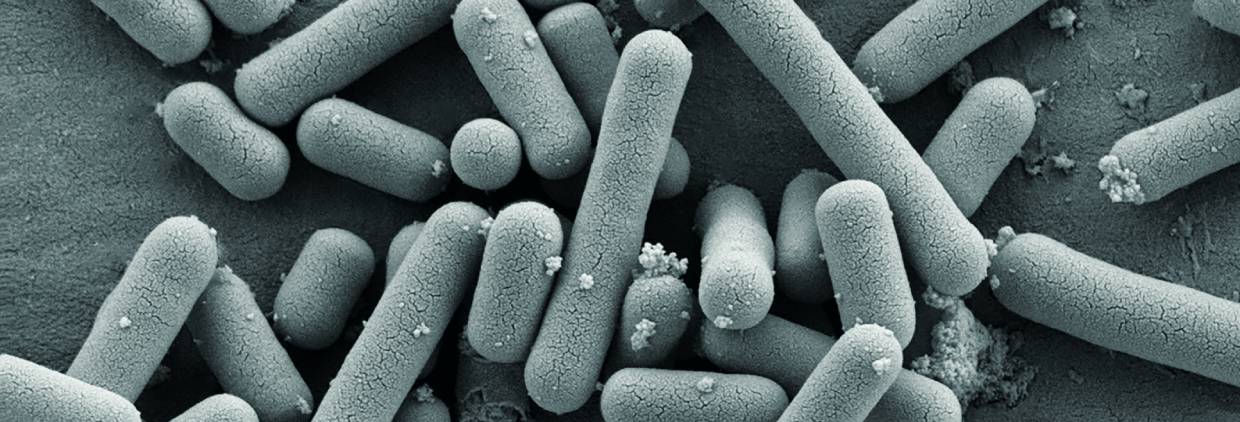L. sakei Probio 65 is a unique probiotic for children and adults that is shown to manage atopic dermatitis through creating a healthy, balanced gut-skin axis.
Disclaimer: Kaneka is not responsible for the structure function claims used in advertising of consumer-packaged goods that contain L. sakei Probio 65. This communication is for informational purposes only, and its content is not to be construed as advice regarding advertising claims. Before advertising consumer packaged goods that contain L. sakei Probio 65, please consult a federal regulatory attorney experienced in the FTC and FDA regulations governing the advertising of dietary supplements.
For the approximate 16.5 million adults1 and 9.6 million infants and children (or 13% of all children)2 in the US with atopic dermatitis, a chronic skin condition also known as eczema, natural relief would be highly welcome, and a safe and easy way to reduce the number of and severity of outbreaks would be even more heartily embraced.
Atopic dermatitis (AD) is a skin disorder characterized by scaling, itchy lesions and excessive dryness, and which is rooted by excessive inflammation. Although pathogenesis of AD is multifactorial it has been reported that up to 90% of AD cases are associated with Staphylococcus aureus infection. It has also been shown that the colonization of S. aureus in lesional and non-lesional skin is proportional with the severity of AD.
Individuals with AD tend to have a disturbed microbiota composition and a reduced diversity in their gut and skin microbiota. An imbalance of the skin microbiota leaves the skin vulnerable to opportunistic pathogenic bacteria such as Staphylococcus aureus.
A gap that may be filled by natural products containing research-backed ingredients such as probiotics is that there is a scarcity of long-term effective treatments for AD, and those that exist tend to bring undesirable side effects, such as weight gain, mood disorders and potential liver damage. In children, corticosteroid use may create impaired growth, immunity and adrenal suppression.
L. sakei Probio 65 is a probiotic strain that, in topical products, may improve AD bouts with a once daily application. Lactobacillus sakei Probio 65 is a lactic acid bacteria strain obtained from kimchi, a traditional fermented food from Korea. L. sakei Probio 65 is an immune-modulating strain with clinically tested efficacy on AD.
Pre-clinical and clinical research shows that L. sakei Probio 65 is completely safe and free of side effects when used long-term, and it work by creating sturdy balance of the immune system, which reduces severity and frequency of AD symptoms.
Several studies have suggested the possibility of using non-viable lactobacilli for immunomodulation [27,28]. Using animal models, both live and dead cells of L. sakei Probio 65 have improved skin condition of AD-induced mice and they exerted a significant reduction of serum immunoglobulin (Ig) E and cutaneous T-cell-attracting chemokines (CTACK). These results suggest that both live and dead cells of L. sakei Probio 65 may prevent the development of skin diseases related to skin inflammation such as AD.
Pre-clinical/Animal
Rodent studies have shown efficacy of ingestible viable and heat-inactivated Lactobacillus sakei Probio 65 in mice with AD.
In one study, L. sakei Probio 65 was shown to improve the condition of skin and reduce scratching frequency. Testing showed significant reduction in serum levels of IgE and cutaneous T-cell-attracting chemokine (CTACK).
The heat-inactivated probiotic cells also reduced interleukin (IL)-4 and IL-6 serum concentrations; and both live and dead L. sakei Probio 65 inhibited the expression of Thymus and activation-regulated chemokine and CTACK in the mice’s AD skin lesions. The increased levels of Foxp3 expression in the lesional areas were also suppressed by L. sakei Probio 65. In addition, L. sakei Probio 65 inhibited b-hexosaminidase release and the secretion of IL-4, TNF-alpha and IL-6 from RBL-2H3 cells.
The researchers asserted that ingestion both viable and heat-inactivated L. sakei Probio 65 inhibits skin inflammation AD-like skin lesions, and mast cell activation. Lactobacillus sakei Probio 65 has an inhibitory effect on atopic dermatitis-like skin lesions and may represent an effective new anti-inflammatory agent.3
Another rodent study investigated the improvement of allergic dermatitis in chemical allergen-induced mice by Lactobacillus sakei Probio 65. Subjects that received L. sakei probio 65 showed a more rapid recovery compared to control mice, as assessed by visual evaluation of the severity of allergic dermatitis and levels of IgE and IL-4.4
Human Clinicals
In 2011, researchers discovered the concept of ghost probiotics, which describes the immuno-modulatory properties of non-viable probiotics. Although seemingly contradictory to the long-held belief that only live probiotics (of all strains) are biologically functional, the use of non-viable (“dead”) probiotic strains has grown significantly due to their better stability and safety over their viable counterpart. (Note: the potential use of non-viable probiotics should be compared only to viable cells of the same strain.) Previously, the efficacy and comparison between both of viable and non-viable probiotics on alleviation of AD has not been well studied.
The goal of one human study was to evaluate the efficacy of both live and dead cells of L. sakei Probio65 when orally consumed by children and adolescents aged 3 to 9 and 10 to 18, respectively, with mild to moderate AD.
In this randomized double-blind, placebo-controlled 12-week study, 58 subjects supplemented with either the L. sakei Probio 65 live cells, L. sakei Probio 65 dead cells, or placebo groups.
Assessment of efficacy was based on the change in SCORing Atopic Dermatitis (SCORAD) score, and changes in skin condition (moisture and sebum) as well as numerous inflammatory biomarkers at baseline, and at weeks 6 and 12. The results were encouraging: the SCORAD total score decreased in the live cells and dead cells group compared to baseline, whereas there were no significant changes in the placebo group when compared to baseline. The skin sebum content increased in both the live cell and the dead cell group, suggesting potential improvements in skin barrier functions. The researchers concluded that supplementing with L. sakei Probio 65 in both viable and non-viable forms provided a positive improvement in alleviation of AD symptoms.5
One study delivered Lactobacillus sakei Probio 65 in a topical formulation to assess performance on AD symptoms. In the double-blind, randomized, split-body clinical trial, 28 subjects with AD applied the Lactobacillus-containing emollient on one side of their body and the control emollient on the other side twice daily for 4 weeks. Trans-epidermal water loss (TEWL) and skin capacitance were evaluated.
The treated sides had significantly lower TEWL and VAS values and significantly higher skin capacitance values over time than the control sides, leading the researchers to demonstratively conclude that application of Lactobacillus-containing emollients (e.g., L. sakei Probio 65) may improve the skin permeability of individuals with AD.6
Researchers in another study evaluated the clinical efficacy of Lactobacillus sakei Probio 65, which previously was shown to exert the most potent inhibitory activity against Staphylococcus aureus growth among Lactobacillus species. In the study of 75 children aged 2 to 10 with severe atopic eczema-dermatitis syndrome, the probiotic strain was compared to placebo to discern clinical outcome and measure levels of serum chemokines (markers for AEDS).
At week 12, researchers marked a 31% (13.1-point) improvement in mean AD activity with probiotic use compared with a 13% (5.2-point) improvement with placebo use. Significant differences in favor of probiotic treatment were also observed in proportions of participants achieving improvement of at least 30% and 50%. Compared with placebo, probiotic administration was associated with lower pretreatment-adjusted serum levels of CCL17 and CCL27 which were significantly correlated with SCORAD total score.
Supplementation of L sakei in children with AEDS was associated with a substantial clinical improvement and a significant decrease in chemokine levels, reflecting the severity of AEDS.7
Conclusion
L. sakei Probio 65, from Kaneka, is a versatile patented probiotic strain that delivers positive skin microbiota balancing effects in both live and dead forms, in supplement and topical formulas.
-----
References:
- Fuxench ZCC, “Atopic Dermatitis in America Study: A Cross-Sectional Study Examining the Prevalence and Disease Burden of Atopic Dermatitis in the US Adult Population” J Invest Dermatol 2019, 139(3) 583-590
- National Eczema Association; www.nationaleczema.org
- Kim J-Y, et al. “Atopic dermatitis-mitigating effects of new Lactobacillus strain, Lactobacillus sakei probio 65 isolated from Kimchi” J Appl Microbiol 2013, 115(2), 517-526
- Park CW, et al. “New Functional Probiotic Lactobacillus sakei Probio 65 Alleviates Atopic Symptoms in the Mouse” J Med Food 2008, 11(3), 405–412
- Rather IA, et al. “Oral administration of live and dead cells of Lactobacillus sakei Probio65 alleviated atopic dermatitis in children and adolescents: A randomized, double-blind and placebo-controlled study” Probiotics and Antimicrobial Proteins 2021,13(2), 315-326
- Park BP, et al. “Effect of Emollients Containing Vegetable-Derived Lactobacillus in the Treatment of Atopic Dermatitis Symptoms: Split-Body Clinical Trial” Ann Dermatol 2014, 26(2), 150-155
- Woo S-I, et al. “Effect of Lactobacillus sakei supplementation in children with atopic eczema-dermatitis syndrome.” Ann Allergy Asthma Immunol. 2010,104(4), 343–348.



